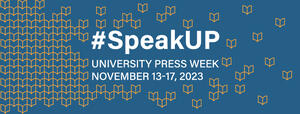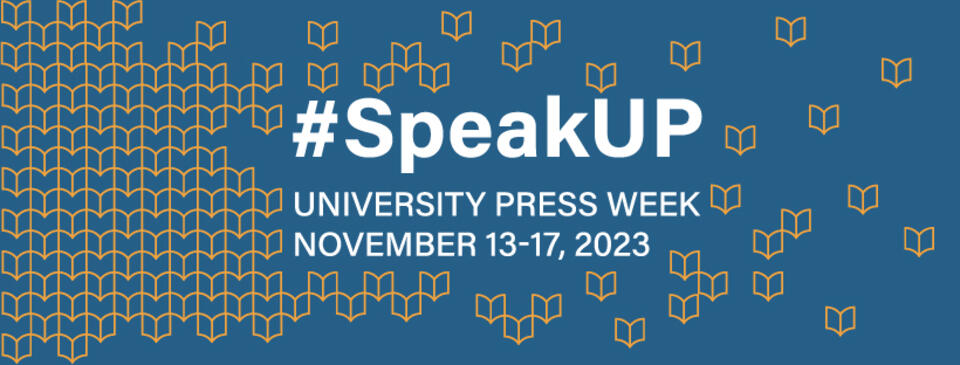
AUP Week 2023: A #SpeakUP Reading List
President Jimmy Carter first started University Press Week (UP week) in 1978 to honor the important role of university presses in advancing and preserving knowledge. In 2012 the Association of University Presses revived the idea of this celebration as part of its 75th anniversary to recognize the impact that a global community of university presses has on every one of us. This November we celebrate UP with the theme #SpeakUP, giving voice to the scholars and ideas that shape conversations around the world.
We’ve created a #SpeakUP reading list. Here are some highlights and key takeaways.
Diasporic Blackness: The Life and Times of Arturo Alfonso Schomburg, by Vanessa K. Valdés
Arturo Alfonso Schomburg was a notable Black Puerto Rican scholar known for his collection of books, prints, and other materials related to Black culture. He was involved in the cause of Cuban and Puerto Rican independence and played a key role in organizations like the Negro Society for Historical Research and the American Negro Academy. His personal library formed the foundation of the Schomburg Center for Research in Black Culture, which is now located at the New York Public Library.
Schomburg's curated library collection at the New York Public Library was a significant resource for influential figures of the Harlem Renaissance, such as Langston Hughes and Zora Neale Hurston.
Diasporic Blackness provides a comprehensive examination of the remarkable life and work of Arturo Alfonso Schomburg, highlighting his Afro-Latinx identity. It sheds light on his role as a Black Puerto Rican, a self-taught intellectual, and his invaluable contributions to preserving the global Black experience at the Schomburg Center.
San Mateo de Cangrejos tells the story of the founding of an area that is today known as Santurce––a, now, rapidly gentrifying district in the capitol city of San Juan. Originally founded as a city by Afro Puerto Ricans who were searching for freedom in the Americas. The area boasts some of the island’s wealthiest districts. But other parts had humble beginnings that are not widely known.
San Mateo de Cangrejos is the birthplace of Harlem Renaissance intellectual and collector Arturo Alfonso Schomburg, and home of baseball legends Roberto Clemente and Willie Mays.
Readers will benefit from the in-depth history portraying Blacks in early Puerto Rico and learn about the circumstances that led to the founding of San Mateo and see how decades of local and island wide public policies affected the community and its inhabitants.
The White Indians of Mexican Cinema explores the unique portrayal of Whiteness as Indigeneity in Mexican cinema during the Golden Age, which reconciles conflicting discourses about race in postrevolutionary Mexico.
Including analysis of twenty films and primary sources Mónica García Blizzard reveals how Mexican cinema has shaped perceptions of race and gender, projected national specificity while perpetuated racist tendencies regarding beauty, desire, and protagonist.
This racial masquerade in Mexican cinema continues to have an impact on contemporary society, highlighting the enduring influence of these representations on societal perceptions of race.
Art Activism for an Anticolonial Future, by Carlos Garrido Castellano
Activism for an Anticolonial Future argues that examining activist art from an anticolonial perspective can provide valuable insights into contemporary politically committed art practices. The traditional view of art activism has been limited to Western culture and the modernist avant-garde, neglecting the contributions and perspectives from non-Western cultures.
Carlos Garrido Castellano highlights the need for a more inclusive and global perspective on political art, which goes beyond assumptions about individual creators and embraces a wider range of cultural practices.
Highlighting the importance of socially engaged art from the Global South and questions the universality of Western artistic norms, Garrido Castellano shows how art can play a role in fostering collective critical consciousness in postcolonial public spheres.
Issues of race and racism continue to impact Black, Latinx, Asian American and Indigenous Peoples in the U.S. Indeed, this is the most pronounced issue in higher education, affecting students, faculty and staff of color on these campuses.
The Racial Crisis in American Higher Education, Third Edition provides a powerful overview of key issues of race and racism in higher education. It includes insightful discussions of the challenges faced by people of color in U.S. higher education institutions.
Offering cutting-edge racial analyses in higher education, the chapters include scholarly work that tackles the issue of racism in the institution and showcases impactful voices, highlighting the extent of racial violence within higher education.
Higher Education for Democracy: The Role of the University in Civil Society, by William G. Tierney
Universities play a crucial role in advancing democracy and should reflect democratic values in their practices and goals. Higher Education for Democracy explores the impact of the COVID-19 pandemic and structural racism on higher education's role in strengthening democracy.
William G. Tierney suggests five important areas of change to address to promote democracy in academia, including inequality, privatization, the public good, identity, and academic freedom.
Through a comparative approach, Tierney utilizes scholarly literature, archival research, and interviews to understand these changes and position higher education as a defender of democracy.
This Bridge Called My Back, Fortieth Anniversary Edition is a collection of personal essays, criticism, interviews, testimonials, poetry, and visual art that explores the intersectionality of race, class, gender, and sexuality in women of color oppression and liberation.
Originally released in 1981, it is a testimony to women of color feminism and its emergence in the late 20th century.
The anniversary edition, reissued 40 years later, contains a new preface by coeditor Cherríe Moraga, discussing the book's living legacy and its impact on the broader community of women of color activists, writers, and artists.
Louise Blanchard Bethune: Every Woman Her Own Architect, by Kelly Hayes McAlonie
Louise Blanchard Bethune, born in Waterloo, NY in 1856 and raised in Buffalo, NY, was America's first professional female architect and faced significant challenges in a male-dominated field during the Gilded Age.
Bethune challenged societal norms and advocated for coeducation and women's emancipation, including equal pay for equal work.
Despite facing discrimination in the design competition for the 1893 World's Columbian Exposition, Bethune's career thrived, and she became the first woman admitted to the American Institute of Architects.
African American Coping in the Political Sphere, by Jas M. Sullivan & Moriah Harman
African American Coping in the Political Sphere focuses on the impact of stressors such as discrimination and police brutality on African Americans' political attitudes and behaviors.
Coping strategies play a significant role in political outcomes for African Americans, in addition to their social, economic, psychological, and health outcomes.
Understanding coping mechanisms provides insight into why individuals hold certain beliefs and behave in certain ways in the political sphere.
More Than Our Pain delves into emotions such as righteous rage, black joy, grief, and fatigue, highlighting the resilience of black life and documenting its harm.
The use of affect and emotion in activism marks a departure from the Civil Rights era, where activists emphasized discipline and respectability. Chapters explore how affect and emotion can drive collective action in addressing the current state of race relations in the US.
More Than Our Pain criticizes the commercialization of black affect in journalism and suggests strategies and ways of being to address fatigue in discussions about race and racism in the US.
The China Order: Centralia, World Empire, and the Nature of Chinese Power, by Fei-Ling Wang
The rise of China represents a continuation of a historical Chinese political governance and world order based on Confucian-Legalism. The international community should understand and respond to this rise of Chinese power by considering historical and cultural factors.
The China Order discusses the golden eras of Chinese civilization, the East-West divergence, and the China Dream's influence on Chinese foreign policy.
China has been a reincarnated Qin-Han polity since 1949, facing challenges in its struggle for regime survival and security.
The Future of China's Past: Reflections on the Meaning of China’s Rise, by Albert Welter
The Future of China's Past explores how China's traditional culture is being manipulated for political purposes, with different historical ideologies being presented as models for China's future.
Albert Welter argues that understanding China's rise requires more than just geopolitical and economic analyses, but also an examination of how China engages with its past.
Welter introduces four traditional lenses of Chinese thought - Confucianism, Legalism, Daoism, and Buddhism - and reflects on their potential relevance for China and the world.
Hindutva and Violence: V. D. Savarkar and the Politics of History, by Vinayak Chaturvedi
Hindutva and Violence examines the political thought of Vinayak Damodar Savarkar, a controversial Indian political thinker, and key architect of Hindu nationalism. Savarkar believed that "Hindutva is not a word but a history," with the purpose of tracing key historical events to the motivation behind acts of violence in a permanent war for a Hindu nation.
Vinayak Chaturvedi explores how Savarkar developed his understanding of Hindutva through his conceptualization of history. Savarkar drew from various sources, including analyses of the nineteenth century and studies of antiquity, to create his histories of Hindus.
Vinayak Chaturvedi's interpretation reveals that engaging with Savarkar's idea of history is crucial in understanding his philosophical foundations of Hindutva.
#SpeakUp with all Association of University Presses member presses with #UPWeek Gallery! The #UPWeek Gallery aims to #SpeakUP, spotlighting AUP's community’s commitment to exploring, engaging, advancing, and promoting the latest ideas and scholarship.
Books Mentioned In This Post
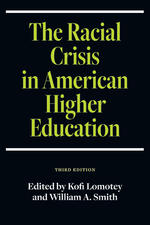
The Racial Crisis in American Higher Education, Third Edition
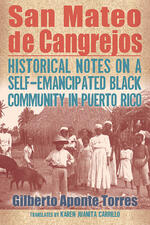
San Mateo de Cangrejos
Historical Notes on a Self-Emancipated Black Community in Puerto Rico
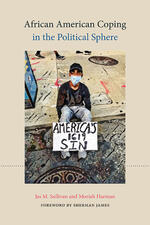
African American Coping in the Political Sphere
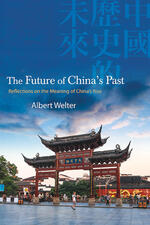
The Future of China's Past
Reflections on the Meaning of China’s Rise
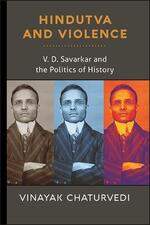
Hindutva and Violence
V. D. Savarkar and the Politics of History
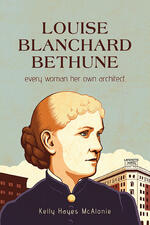
Louise Blanchard Bethune
Every Woman Her Own Architect
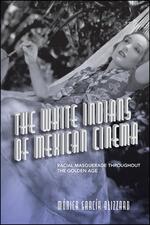
The White Indians of Mexican Cinema
Racial Masquerade throughout the Golden Age
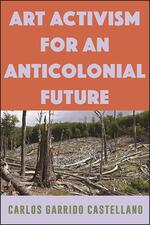
Art Activism for an Anticolonial Future
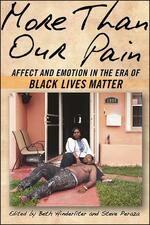
More Than Our Pain
Affect and Emotion in the Era of Black Lives Matter
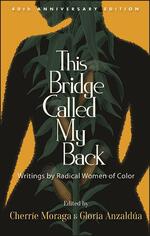
This Bridge Called My Back, Fortieth Anniversary Edition
Writings by Radical Women of Color
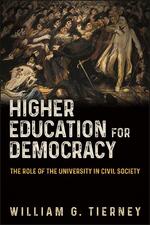
Higher Education for Democracy
The Role of the University in Civil Society
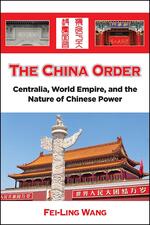
The China Order
Centralia, World Empire, and the Nature of Chinese Power
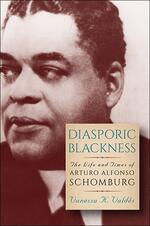
Diasporic Blackness
The Life and Times of Arturo Alfonso Schomburg

